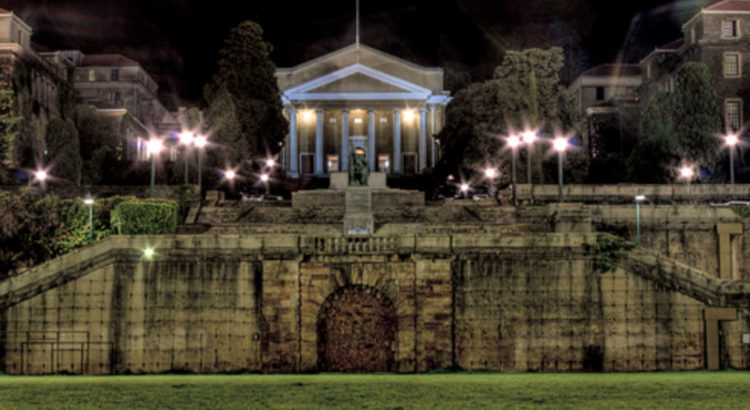África/Agosto del 2017/Noticias/https://theconversation.com/
Jonathan Jansen, vice-chancellor of the University of the Free State in South Africa until a year ago, has written a book on the country’s higher education sector. As by Fire – The End of the South African University is one of a number of recent books that set out to make sense of the current crisis in South African universities.
The crisis began in early 2015 with the #RhodesMustFall protests and gained momentum over the course of 2015. These protests fuelled, and eventually overtook the national #FeesMustFall movement. The underlying economic, cultural and political issues that drove the protests remain largely unresolved.
As by Fire is structured around three main questions: What in fact happened? Why did it happen? And what does the protest crisis mean for the future of South African universities?
Jansen draws on his own experience as well as interviews with 11 vice-chancellors in the country. His conclusion is:
In a nutshell, there is no future, and
What we are witnessing is a full system meltdown.
There are several problems with Jansen’s apocalyptic thesis.
An irresponsible thesis
Firstly, for a scholar of Jansen’s calibre, the analysis lacks a broad comparative perspective. His main reference point is the story of failing universities on the rest of the continent.
Jansen doesn’t make any comparisons to student protests across the globe– in Hong Kong, Canada, Chile, the UK, the US and Turkey, to name a few. These were also characterised by occupations of leaderless movements, threats of violence by police and militant students, reassertion of identity politics in curriculum and political stalemate.
A more thorough comparative analysis of what is happening in South Africa in relation to continental and global trends could have led to a more constructive conclusion that posed a range of future scenarios instead of a single “no future” story.
The more serious problem with Jansen’s “no future” thesis is that it’s irresponsible. Someone of Jansen’s profile has tremendous power to shape the narrative. And how South Africans interpret the events of the past two years shapes how the sector will go forward. In other words, his conclusion has consequences. Why would academics stay if they believed Jansen’s predictions with the certainty that he projects them? Why would students apply? Why would donors invest?
In the final few paragraphs Jansen attempts to wave a small flag of hope by appealing to civic action under the banners of free education for the poor and the right to education for all. This is an unconvincing attempt to end the book on a happier note.
An important perspective on leadership
What the book does offer is a view of university leaders under crisis – a close-up, zoomed-in, largely unedited perspective of 11 VC’s “under fire”, in some cases, literally. This is why the book will be of interest to anyone in higher education management.
The extensive literature of higher education leadership and management needs more of this kind of “in the trenches” study – leaders describing in their own words what it feels like to be flattened between a rock and a hard place, managing competing and contradictory demands from all sides while always under the watch of an unsympathetic media.
The book presents a view of leaders in a lose-lose situation, required to make on-the-spot judgement calls. The reader gets a close-up view of the ways in which they worked tirelessly to defend their institutions and were battered from every side. And Jansen is right to expose the extreme pressure and the personal costs that the VCs and their families paid. The accounts expose both their vulnerability and their resilience.
Jansen concludes by arguing that what’s needed more than ever before is
university leadership that is both compassionate in speaking to the student heart and competent in leading our universities in a demanding world of teaching, research, and public duty.
The missed opportunity of the book is that Jansen doesn’t explicitly extract from his interviewees what that compassionate competence looks like. In retrospect, what do they think they did right? What do they regret? What did they learn as leaders in crisis about the complexities of leading a university community at this stage of South Africa’s democracy?
Rebecca Solnit, American activist and author of Hope in the Dark, writes of the times we are living in that
this is an extraordinary time full of vital, transformative movements that could not be foreseen. It’s also a nightmarish time. Full engagement requires the ability to perceive both.
What South Africa’s universities need from their leaders now is not prophecies of doom, but deeper reflection on the transformative potential of this difficult historical moment.
Fuente:https://theconversation.com/the-end-of-south-african-universities-82180
Fuente Imagen : https://lh3.googleusercontent.com/wf06ZYJ0_sZdaa_AYevAy7P5znkbvjXejpNivdJmcTEYowLECQDQhxLI0eR2VkdPqNbMeA=s85







 Users Today : 30
Users Today : 30 Total Users : 35459625
Total Users : 35459625 Views Today : 72
Views Today : 72 Total views : 3418044
Total views : 3418044